How Kurt Vonnegut, acerbic citizen of Planet Earth, anticipated the current ecological crisis and the need to go green.
Books
 Influence and Anxiety
Influence and AnxietyAlice Carriere, daughter of famous artist-and-actor parents, blows away the standard memoir fare with graphic accounts of self-abuse and a blitz of pharmaceuticals.
 Beauty and the Beast
Beauty and the BeastWilliam J. Mann’s “Bogie & Bacall” plows into the star couple’s roughly decade and a half together — insightfully and exhaustively.
Mark Matousek will elucidate “Lessons From an American Stoic: How Emerson Can Change Your Life” on Friday at The Church in Sag Harbor.
 A Life in the Book Biz
A Life in the Book BizJohn Sargent’s memoir reveals an informed guide to modern publishing, and then some: from heading up Macmillan to fighting off Amazon.
Philip Schultz and Grace Schulman talk poets and poetry at Duck Creek, while A.M. Homes and Carl Bernstein hash out the political moment.
Paul Harding longlisted, Richard Brockman as survivor, Fran Castan and Canio Pavone read.
 Reversals of Fortune
Reversals of Fortune The 30 stories in Francis Levy’s “The Kafka Studies Department” add a lightly absurdist take on human psychology to the landscape of literary brevity.
 Looking for Mr. Bunbury
Looking for Mr. Bunbury “Gays on Broadway” is not a comprehensive study. What it is is an idiosyncratic and arch amalgam of history, criticism, and juicy gossip.
 All That Glitters
All That GlittersHelen Schulman’s new novel is a #MeToo tale driven by one question: “How could one woman do this to another woman?”
 There Goes the Neighborhood
There Goes the NeighborhoodCoogan’s, a late, lamented neighborhood bar in Washington Heights, is the subject of a new book whose author will be at the Hampton Library in Bridgehampton to talk about it with the saloon’s former owner.
 Playwright at Work
Playwright at WorkChristopher Byrne considers the life and work of Terrence McNally, a giant of the American theater.
 Postcards From Pompeii
Postcards From PompeiiGo to this year’s Pushcart anthology to hear what’s not being talked about in polite company, to read work that would likely be banned in Florida, to be transported.
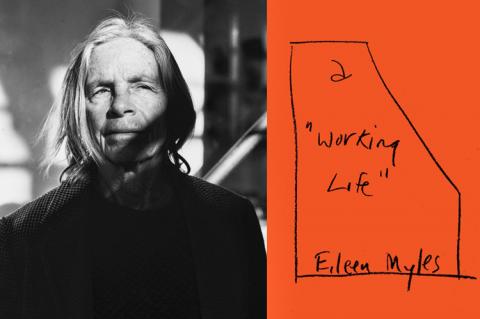 The Poems Are the Plan
The Poems Are the PlanEileen Myles, whose poems race headlong down the page, is nothing if not consistent, and prolific. Myles’s latest collection is “a Working Life.”
 Reimagining the Commons
Reimagining the CommonsPublic spaces needn’t be immutable, privatized, or useless. They can be claimed for the community good. Professor Setha Low takes a fresh look.
Colson Whitehead reads from his new novel, “Crook Manifesto,” Thursday night in Sag Harbor, while Bill Boggs is in East Hampton Saturday with “Spike Unleashed: The Wonder Dog Returns.”
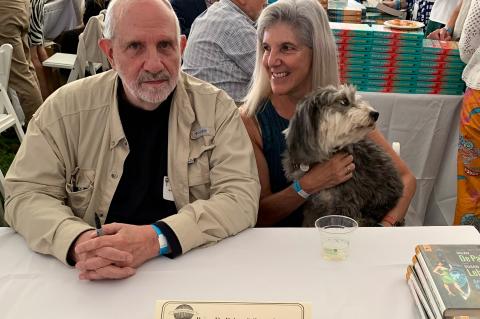 Authors a-Go-Go at Herrick Park
Authors a-Go-Go at Herrick Park Authors Night, Saturday, Aug. 12, Herrick Park, East Hampton. Be there.
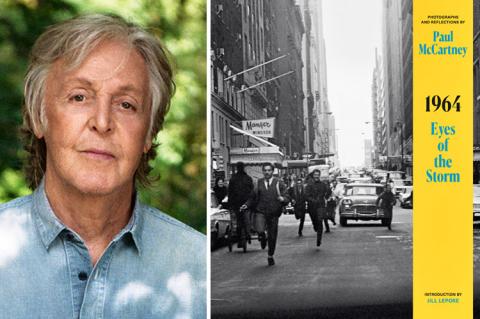 McCartney: Behind the Camera
McCartney: Behind the CameraPaul McCartney’s “1964: Eyes of the Storm” collects more than 200 photographs he took with a Pentax camera late in 1963 and early in 1964.
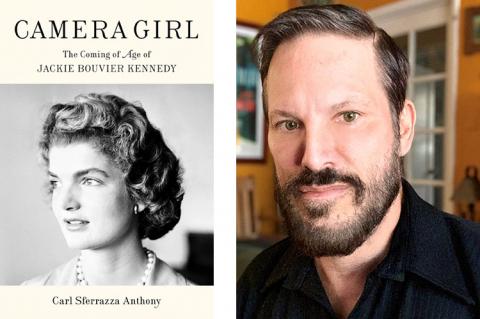 Jackie, Before Jack
Jackie, Before JackHere is the Jackie Bouvier Kennedy you may not know — photog, columnist, gal about town.
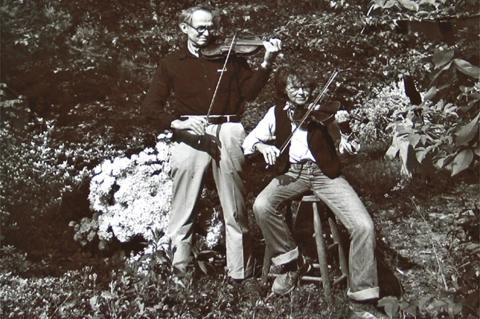 South Fork Poetry: ‘The Opening’
South Fork Poetry: ‘The Opening’A Philip Schultz poem in tribute to the East Hampton artists Connie Fox and William King.
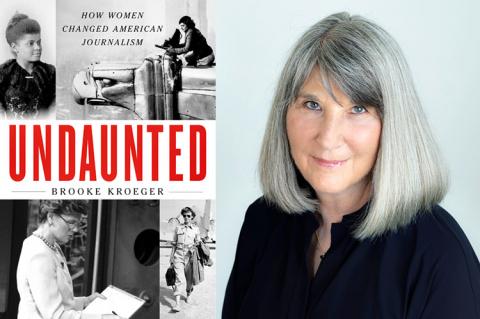 How Women Broke Old Molds in News
How Women Broke Old Molds in News Women’s increasing numbers in and influence over American journalism is explored in “Undaunted” by Brooke Kroeger, a veteran correspondent and professor.
Carmela Ciuraru will talk to Katie Couric about “Lives of the Wives: Five Literary Marriages” at Guild Hall on Monday night.
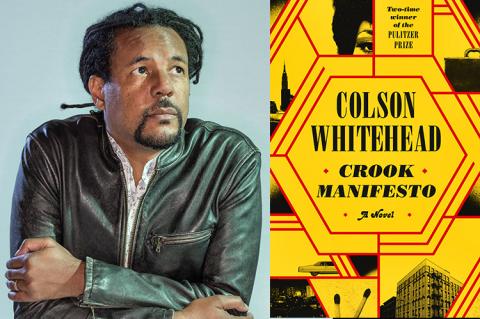 Harlem Kerfuffle
Harlem KerfuffleFor his new one, Colson Whitehead returns to Harlem, this time in the 1970s, and Ray Carney, who’s busier than ever with his furniture store and his stolen goods.
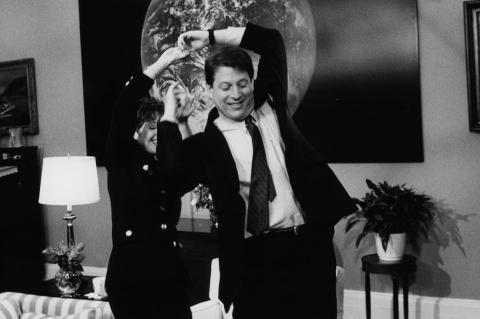 Book Markers: From Katie Couric to Sunny Hostin
Book Markers: From Katie Couric to Sunny HostinKatie Couric is first up at the revived Fridays at Five, while Sunny Hostin visits the East Hampton Library with her new novel.
 From the Master’s Mouth
From the Master’s MouthLaurie Anderson has compiled Lou Reed’s notes into a book showing how tai chi saved the rocker’s life and came to define his life.
 A Natural Music
A Natural MusicThe poet and farmer Scott Chaskey returns with fresh takes on birds and words, seeds and trees.
 Coming of Age in the ’80s
Coming of Age in the ’80sFrom tattoos to dead-end jobs, here is a novel for anyone who had no idea what came next in their youth.
 William Finnegan and Brooke Kroeger in Q&As
William Finnegan and Brooke Kroeger in Q&AsIt’s William Finnegan in Montauk on his “Barbarian Days” surfing life, and Brooke Kroeger in East Hampton on the history of women in journalism.
 Wisecracks and Cold Cases
Wisecracks and Cold CasesMeet Corie Geller, onetime F.B.I. agent, and her retired police detective dad, both thrilled to be back on the case.


